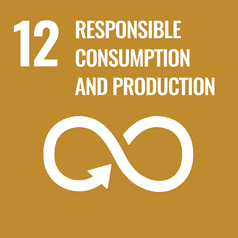$1.7million ARC Linkage funding to engineer sustainable solutions
Holding promise to drive sustainable solutions to deliver better outcomes for Australia, three University of Newcastle engineering research projects will share in $1.7million funding awarded by the Australian Research Council (ARC) Linkage Program.

From investigating the risk of toxic compounds in agricultural land, to analysing if masonry in homes can withstand earthquakes, the successful projects will help transform industries, enhance environmental sustainability and strengthen the Australian economy.
The ARC Linkage Program helps researchers, industry, and community organisations drive innovation and deliver outcomes for the benefit of Australia.
The awarded ARC Linkage Projects 2022 round 1 research projects from the University of Newcastle include:
Understanding the fate of toxic compounds in agricultural land
Per- and polyfluoroalkyl substances (or PFAS) represent a group of compounds used in households and a wide range of industry sectors around the globe. PFAS have become ubiquitous in the environment and are detected in biosolids worldwide, including Australia.
Recent restrictions on the manufacture and use of long-chain PFAS have led to the use of short-chain PFAS as alternatives. As a result, levels of short-chain PFAS have been increasing in the environment, particularly in biosolids, 70% of which are used in agricultural for soil improvement and to stimulate plant growth and increase crop productivity.
Another class of compounds knows as PAPs (or polyfluoroalkyl phosphate esters) have been used in the manufacturing of commercial products such as cleaning products, grease proofing agents, floor polish solutions, fast-food packaging, and various household materials. PAPs constitute a major part of PFAS in biosolids yet are generally ignored in PFAS analysis.
Led by Professor Megharaj Mallavarapu, the research team will investigate the degradation pathways PAPs in biosolids and biosolid-amended agricultural soils. They will also generate new knowledge about PFAS in biosolid amended soils and crops.
The project brings together expertise in environmental science, chemistry, eco-toxicology and remediation to provide in-depth knowledge and develop practical solutions to ensure the application of biosolids in agricultural land is environmentally sustainable for Australian farmers and communities.
Funding awarded: $615,060
Collaborating partners: Hunter Water Corporation, University of Melbourne, Melbourne Water Corporation, South East Water Corporation, South Australian Water Corporation, Intelligent Water Networks, Water Research Australia Limited, EPA Victoria, and Arcadis Australia Pacific Pty Ltd.
A new, sustainable design approach for resilient railway formations
This project aims to validate a new design approach for more sustainable and resilient railway formations. The railway network underpins the Australian economy and its maintenance costs tens of millions of dollars every year. This cost will increase with the growing frequency and intensity of climatic events.
The research will advance the knowledge on the effect of water on the performance of railway formations and will deliver a novel design tool for end-users that will allow engineers to recycle fouled ballast in formations. Led by Professor Olivier Buzzi the project will yield significant financial benefits for Australia and will address environmental and sustainability issues linked to fouled ballast.
Funding awarded: $607,631
Collaborating partners: University of Technology Sydney, Tensar International Limited, Australian Rail Track Corporation, SMEC Australia Pty Ltd.
Assessment of structural integrity and deterioration of masonry walls
Bricks have traditionally been used in the housing sector and in medium-rise buildings. Brickwork is also widely used for modern construction, given its aesthetic appeal and modest cost. However, building regulators are increasingly concerned about the mounting evidence of slow building deterioration, particularly of older buildings. This poses public safety risks under normal conditions and even greater risks during high winds or earthquakes.
Led by Associate Professor Igor Chaves, this research project aims to obtain evidence of typical masonry building deterioration. It will couple this with mathematical modelling and state-of-the-art, non-destructive visual and dynamic techniques to develop tools for making fast, low-cost practical building risk assessments.
Funding awarded: $520,000
Collaborating partners: Curtin University, Department of Mines, Industry Regulation and Safety, and EngAnalysis Pty Ltd.
Related news
- Launch of the School Students’ Statement on the Right to a Healthy Environment
- Funding boost to technology for lower emission steel
- Newcastle team on mission to improve childhood cancer outcomes
- Shanae’s passion for caring delivers her dream to work in health
- Food and nutrition degree serves Keren a rewarding career
The University of Newcastle acknowledges the traditional custodians of the lands within our footprint areas: Awabakal, Darkinjung, Biripai, Worimi, Wonnarua, and Eora Nations. We also pay respect to the wisdom of our Elders past and present.



